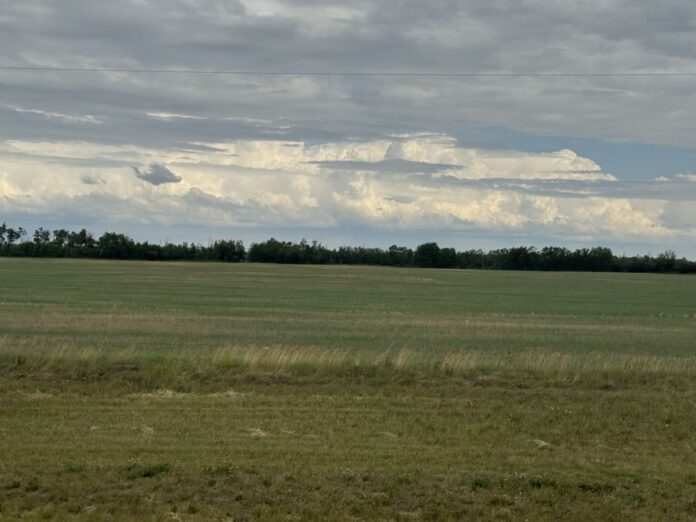The AG Ministers office says they are monitoring the current situation that has resulted in several municipalities declaring an agricultural disaster or state of emergency.
In a statement to Vista Radio from the Alberta Minister of Agriculture and Irrigation’s office, in some regions across the province, the 2025 crop year has been challenging, and there are several programs available to producers to help address these issues and risks.
The statement reads, “Agriculture Financial Services Corporation offers AgriInsurance for protection against severe and uncontrollable natural hazards; AgriStability for protection against income declines; and AgriInvest, a producer-federal government savings account, for managing small income declines. These programs help producers stay prepared and resilient in the face of uncertainty.”
It adds that there is a program under the perennial crop insurance that responds to dry conditions and has become an important risk management program for pasture insurance called Moisture Deficiency Insurance.
“AFSC has confirmed that MDI producers in the County of Grande Prairie who enrolled in the 2025 program have received payments. In addition,” the statement reads. “AFSC offers the Moisture Deficiency Endorsement (hay) program, which can be purchased along with dryland Hay Insurance.”
As well, on Friday, the Minister’s office announced the low yield allowance was adjusted for the 2025 crop season.
“This is good news for farmers, as they can salvage crops for livestock feed, reducing feed costs and increasing access to livestock feed in dry regions where it is scarce. Producers must contact AFSC to find out how best to proceed and get the necessary inspections completed before starting any harvesting.”
According to the statement, other changes made to support producers during this time include the AgriStability compensation rate being increased from 80 per cent to 90 per cent, and the benefit cap was increased from $3 million to $6 million for 2025.
In Ottawa, changes made to support producers includes raising the interest-free limit of the Advanced Payment Program to $250,000, and the Livestock Tax Deferral was implemented. The deferral provision is said to focus on helping producers reduce their tax obligations and alleviating some of the financial pressures.
“Alberta has been advocating to have the preliminary list of areas where producers can qualify for the deferral to be released as soon as possible so that producers can plan,” the statement adds.
The County of Grande Prairie declared an agriculture disaster in June, and a month and a half later, Reeve Bob Marshall explained that the whole point of making the declaration was to elevate the severity of the situation to the provincial and federal government.




